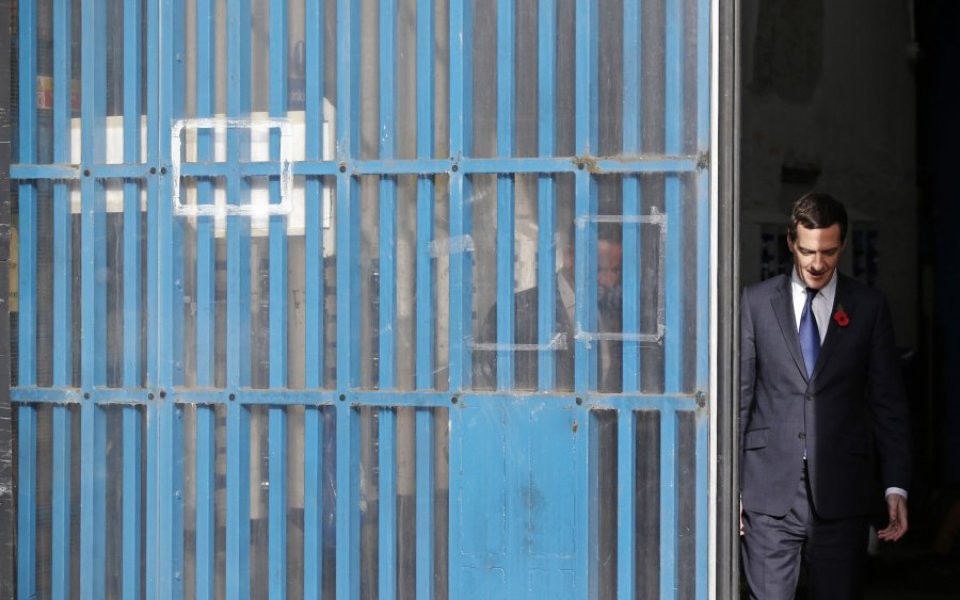Autumn Statement and Spending Review 2015: The verdicts on George Osborne’s proposals

THE BUSINESS GROUP HEAD
CAROLYN FAIRBAIRN, CONFEDERATION OF BRITISH INDUSTRY, DIRECTOR-GENERAL
The apprenticeship levy will be a big extra payroll tax on employers and widening the net will hit Britain’s smaller firms.
This was a good spending review for longer-term investment in the economy but there’s a sting in the tail in the size and scope of the Apprenticeship Levy. Set at 0.5 per cent, it is a significant extra payroll tax on business and by widening the net it will now catch more smaller firms.
We welcome the creation of a levy board to give business a voice on how the money is spent and will work with the Government to ensure a focus on quality.
THE ECONOMIST
VICKY REDWOOD, CAPITAL ECONOMICS CHIEF UK ECONOMIST
A surprising improvement in the Office for Budget Responsibility’s public borrowing forecasts saved the chancellor’s bacon in the Autumn Statement, allowing him to scrap his controversial tax credit cuts while still adhering to his fiscal rule to achieve a surplus in 2019-20.
The big picture regarding the economy has not changed though – namely that a big new wave of austerity is still set to hit next year. Accordingly, we still think that the recover y will slow a bit in 2016.
However, the economy is relatively well-placed to weather this squeeze. Most importantly, real wages are rising strongly (whereas they were falling during most of the austerity in the last parliament). So we don’t think that the slowdown will be too sharp.
THE LOW-TAX LOBBYIST
SAM BOWMAN, ADAM SMITH INSTITUTE EXECUTIVE DIRECTOR
This is the right decision on tax credits and we applaud the chancellor for changing his mind. Tax credits are the right way of doing welfare, encouraging people into work and topping up the incomes of the working poor.
But now that they have been protected, we should reform the system by making it less complex and automatic, just as PAYE taxation is run.
Finally, the government is taking localism and devolution seriously. Northern Ireland has needed control of its corporation tax rate for years, otherwise business simply flees across the border to the Republic where rates are 12.5 per cent and this move has been longawaited.
THE ENGINEERING CHIEF
NELSON OGUNSHAKIN, ASSOCIATION FOR CONSULTANCY AND ENGINEERING, CHIEF EXEC
The importance of infrastructure investment in the UK was summoned up in his statement that “we are the builders”.
As the industry that does build the foundations that this country relies on, we can only support his view of the need to invest in the future of our country.
The chancellor’s commitment to further devolution provides devolved governments with greater freedom, power and resources to meet the challenges faced by our communities, but we must not let this open up a two-tier country between those areas that are devolved and those that are not.
I am also concerned the government is cutting operating budgets in the departments of transport and energy and climate change as this will impact on the ability to maintain the new infrastructure that he has committed to build with the expansion of their capital expenditure budget.
THE HOUSING EXPERT
JEREMY BLACKBURN, RICS HEAD OF POLICY
A push towards affordable home ownership should not come at the expense of affordable homes for rent. If cities are to thrive, we need to ensure that housing can be provided for all its workforce – home ownership can go only so far. The chancellor was short-sighted not to incentivise affordable homes for rent.
Osborne is essentially subsidising one sector of the housing market over all others, home buyers already benefit from significant government funding. Many people struggle to afford their homes and a majority rely on the available supply of affordable rents.
He may feel that he is supporting the under-privileged by pushing up buy-to-let stamp duty, but we would argue that such a measure will discourage small land lords and cut rental supply – prices will inevitably rise.
THE OPPOSITION’S RESPONSE
JOHN MCDONNELL, SHADOW CHANCELLOR
The Labour party’s shadow chancellor called the tax credits U-turn a fiasco and blasted the selling of state assets.
However, he raised eyebrows in the House of Commons yesterday – especially among his own party’s backbenchers – when his Autumn statement rebuttal included a reading from Chairman Mao’s Little Red Book.
“At the same time as the chancellor was planning to cut tax credits to working families, he cut inheritance taxes for some of the wealthiest families in this country,” McDonnell said.
“There’s only so long you can blame past governments, there’s no more excuses for this chancellor after five years," the shadow chancellor said while also warning of a “massive winter crisis” in the NHS.
He used his response to tease Osborne for the growing relationship between the UK and China and said: “To assist Comrade Osborne about dealing with his newfound comrades, I have brought him along Mao’s Little Red Book.”
Further explaining his misjudged joke, in reference to the Hinkley Point nuclear power plant deal with the Chinese, McDonnell also slammed the era of austerity, which he said Osborne pledged would last only five years: “People will feel absolutely betrayed”.
THE TRADE UNIONIST
FRANCES O’GRADY, TUC GENERAL SECRETARY
The chancellor has been forced into a spectacular climbdown on tax credits. But by the end of the parliament, many working people will still suffer big losses because he is keeping planned cuts to Universal Credit.
Local government did not get the protection that it needs today. As funding cuts continue, Sure Start centres, local care homes, leisure centres and libraries are all in the firing line, particularly in poorer areas where the impact of phasing out central government grants will hit hardest and the new social care precept will have less benefit.
He needs to recognise the importance of investment in public services, genuinely affordable housing, and a fairly shared recovery.